
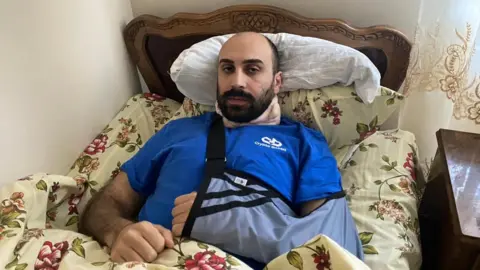 Avandtil Kuchava
Avandtil Kuchava
Avandtil Kuchava is one of a number of Georgian protesters to have suffered severe injuries
More than 300 people have been arrested since mass protests erupted in Georgia six nights ago, and an increasing number of accounts have emerged alleging violent attacks by police.
One man has told the BBC how he was repeatedly kicked in the head, even after he had been knocked unconscious. "When I opened my eyes a third time I couldn't feel my legs or hands - I couldn't even move my head," said Avandtil Kuchava, a 28-year-old businessman.
Demonstrations have continued every night since last Thursday, after ruling party Georgian Dream said it was halting the country's bid to start talks on joining the EU.
Prime Minister Irakli Kobakhidze has accused opposition politicians of orchestrating the violence, blaming them for the injuries.
However, the force exercised by police has been described as torture and brutality by Georgia's human rights ombudsman, and it has drawn condemnation from United Nations rights chief Volker Türk, who said the use of "unnecessary or disproportionate force... is extremely worrying".
Moment Georgian woman confronts police forming barricade
"Don't blame others," warned the US embassy in Tbilisi in a pointed message on social media directed at Kobakhidze's Georgian Dream government.
It reminded Georgians that it was the ruling party that had halted the EU process and then lost its strategic partnership with the US two days later.
Georgian Dream has been in power for 12 years and has introduced increasingly authoritarian laws on civil society, freedom of speech and LGBT.
For six nights running, tens of thousands of Georgians have taken to the streets, accusing the government of trying to destroy their path to a European future and take them back into Russia's sphere of influence.
Riot police in body armour have then sought to push them back with tear gas and water cannon.

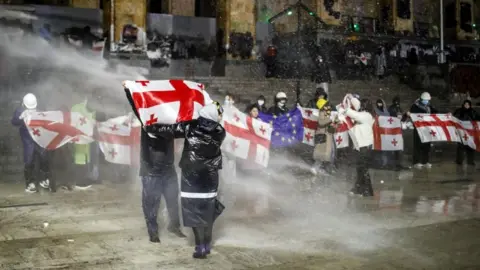 EPA-EFE/REX/Shutterstock
EPA-EFE/REX/Shutterstock
Police fired water cannon at demonstrators on Tuesday night outside the parliament building
Videos of protesters defying the police have gone viral.
One woman brandished a Georgian flag as she braved a stream of water cannon, while another walked headlong into a barricade of police standing behind riot shields.
"You garbage people! I'm tired, so what do you want? Are you afraid of me?" shrieks the young woman defiantly, before she is bundled through the barricade and taken away.
The woman has since been identified as Nana Tomaradze and she is now being held in a pre-trial detention centre, her lawyer Lasha Tkesheladze has told the BBC.
For now she is facing an administrative charge that could attract five days in jail or a fine, which her lawyer says is the equivalent of two to three months' wages.
"She has an 11-year-old son who has no-one to stay with," he says.
In another video an elderly woman walks along a line of helmeted riot police, berating them for pitting Georgian against Georgian and defending politicians in their palaces.
But the harshness of the police response has drawn comparisons with autocratic states, most notably Russia and Belarus, and the government's critics say they are operating from a Russian playbook.
Other videos that have gone viral here are far more sinister.
A middle-aged man in an orange jacket is punched and pushed to the ground as he tries to get through a large crowd of stationary riot police.
A young man lying prostrate on the ground is kicked in the head several times as a young woman pleads with them to stop.
Avtandil Kuchava endured a similar ordeal from police in unmarked black clothing and after two days in hospital he is now recovering at home.
"There were four people at the beginning, but after I was knocked out I didn’t know how many were beating me. When I opened my eyes someone’s foot was coming towards my face and I blacked out a second time.
"After I opened my eyes the third time, someone broke my collarbone with his hand. Then I blacked out, and the next time I came round I was being taken to the police station in a car."
The BBC has approached Georgia's ministry of internal affairs for comment but has so far not received a response. The ministry has said that 113 law enforcement officers have been injured since the protests began and that police have come under attack from fireworks and other objects.
Avtandil Kuchava says a formal investigation into his case has begun, but he holds out little hope of any result, even though there were plenty of CCTV cameras in front of the Georgian parliament, where it happened.
Although he was attacked early on Saturday, Georgian lawyers say police continue to inflict what they call torture on protesters.
The Legal Aid Network says most of those held on Monday were "brutally beaten". Public ombudsman Levan Ioseliani has said that because most of the injuries have been to "the face, eye and head area", that suggests police may have used violent methods as a means of punishment.

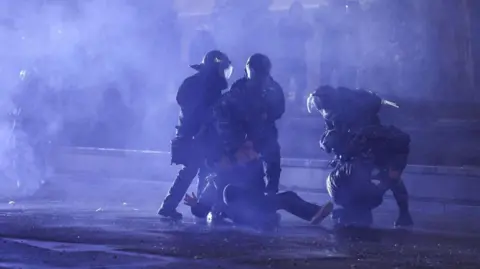 Getty Images
Getty Images
Police have been accused of using disproportionate force and of deliberately targeting protesters faces and heads
One man in his early 20s was hit in the eye by a tear-gas canister on Tuesday and taken to hospital where he was placed in an induced coma.
Georgia's prime minister has acknowledged there has been violence "on both sides", but he has singled out opposition parties and non-government organisations for stirring up the protests and blamed members of "violent gangs" for the unrest.
The protesters returned to the main avenue outside parliament again on Tuesday night, demanding a re-run of contested elections which monitoring groups say were marred by a string of violations.
Nikolas, 30, was undeterred by the risk of arrest or injury: "Cases like that cause more anger. It's impossible for us to step back now."
Hopes of convincing the constitutional court to annul the 26 October parliamentary elections were dashed on Tuesday when it rejected a lawsuit from Georgia's pro-Western President Salome Zourabichvili, and the four main opposition groups that she has backed.
Meanwhile, further arrests have been reported outside parliament during the sixth night of protests.
Outside a detention centre on the outskirts of Tbilisi where many of the arrested protesters are being held, a group of activists held up posters of badly bruised protesters while one of them chanted "freedom for detainees" through a megaphone.
"We want the international community to understand that this is not only a fight for Georgian people but it's a fight between Russia and Western values," said one of the activists, Mari Kapadnadze.

 3 weeks ago
3
3 weeks ago
3

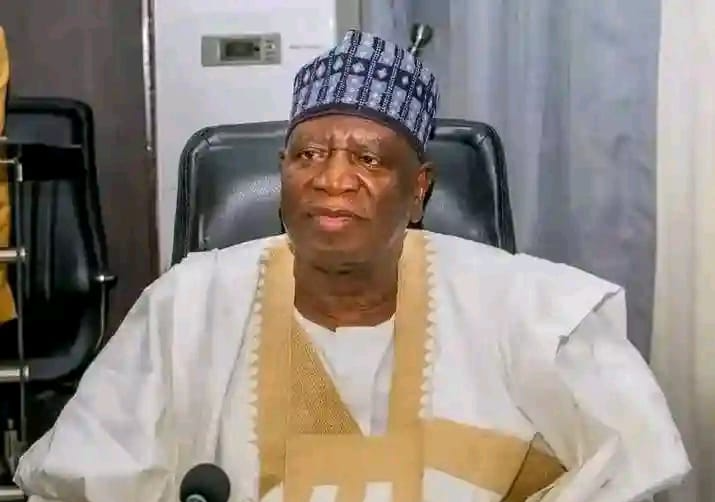
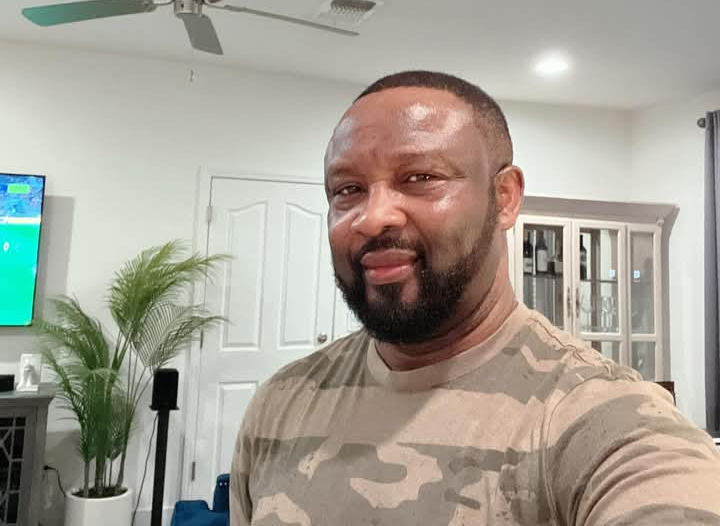

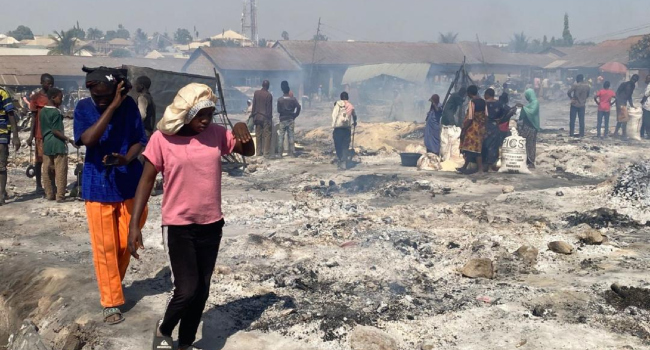


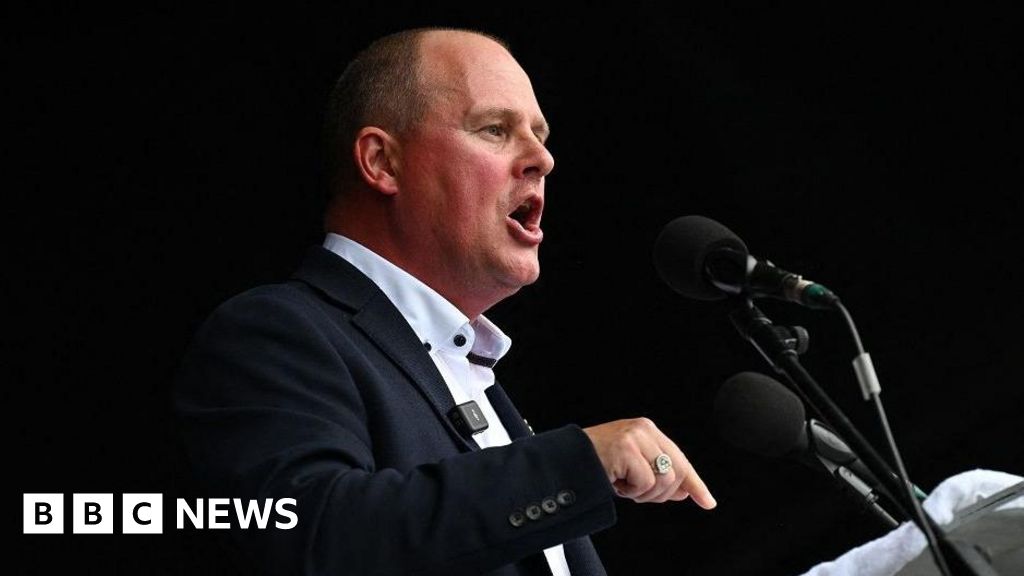

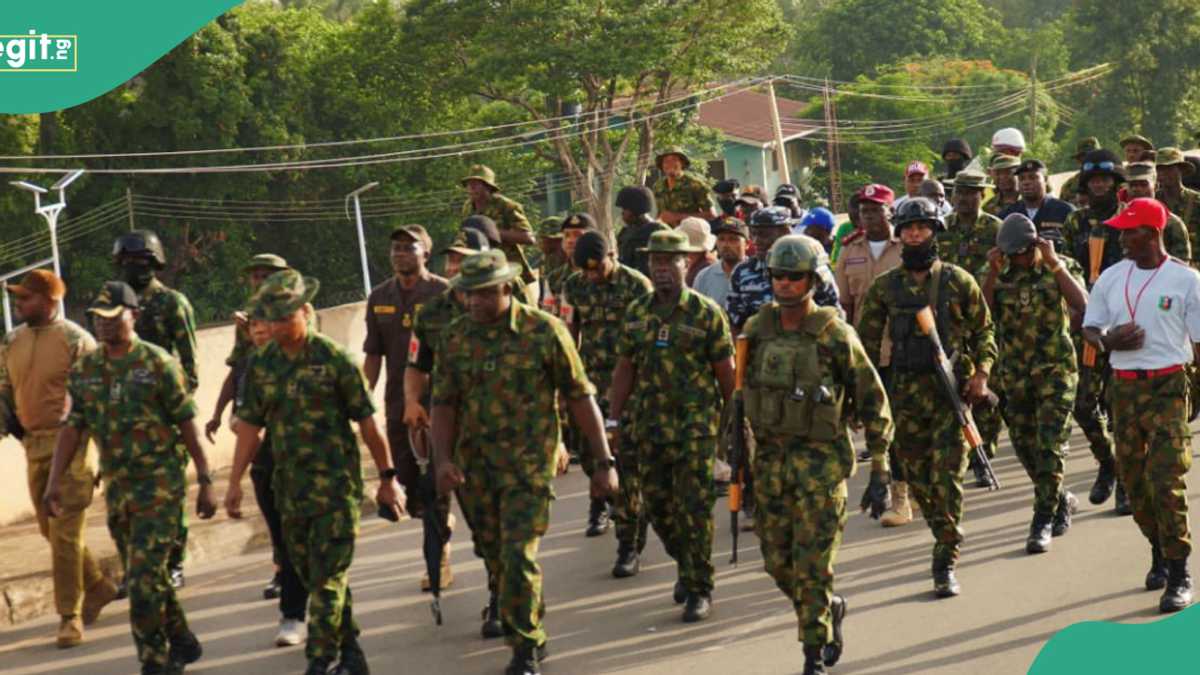
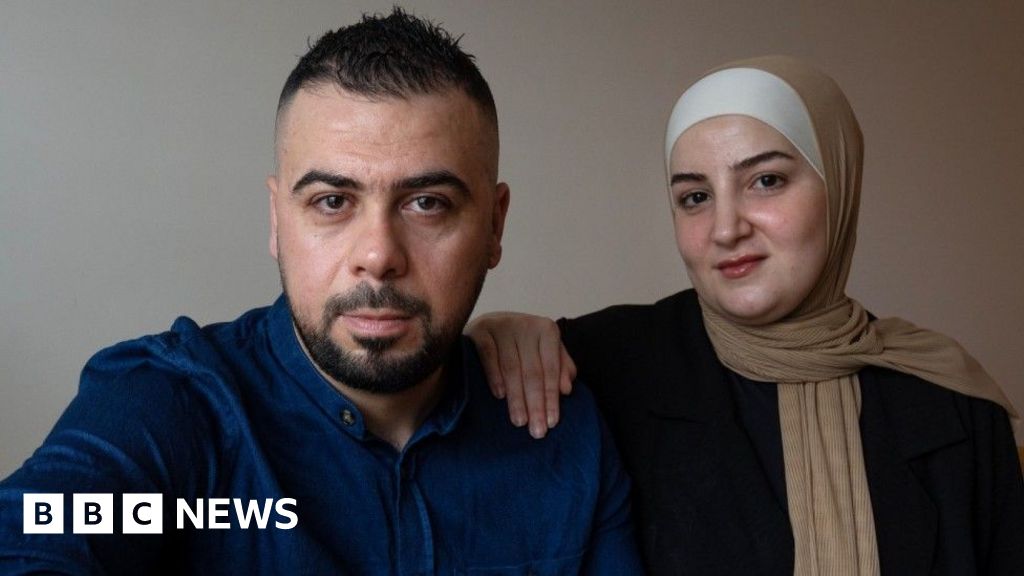


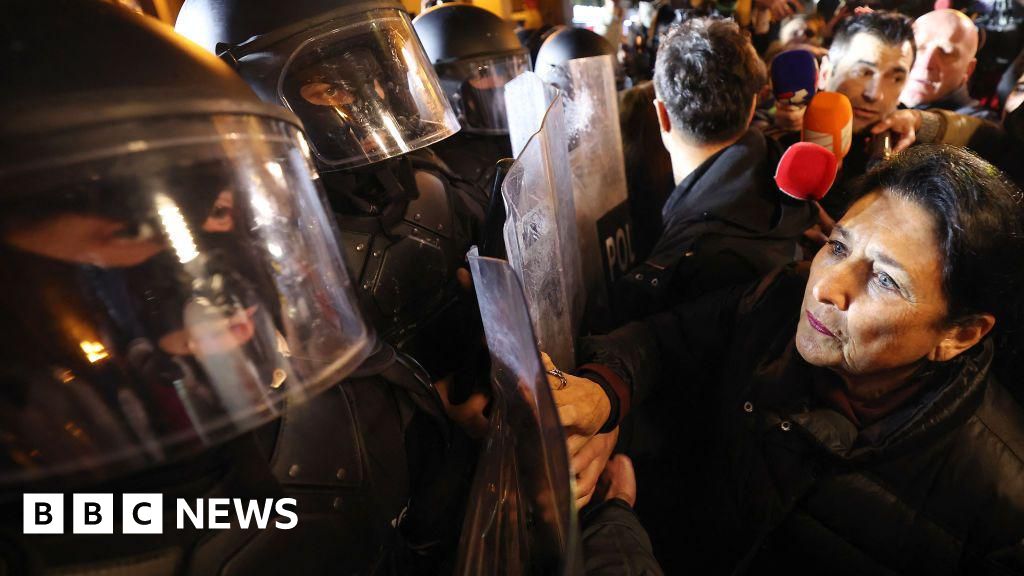

 English (US) ·
English (US) ·